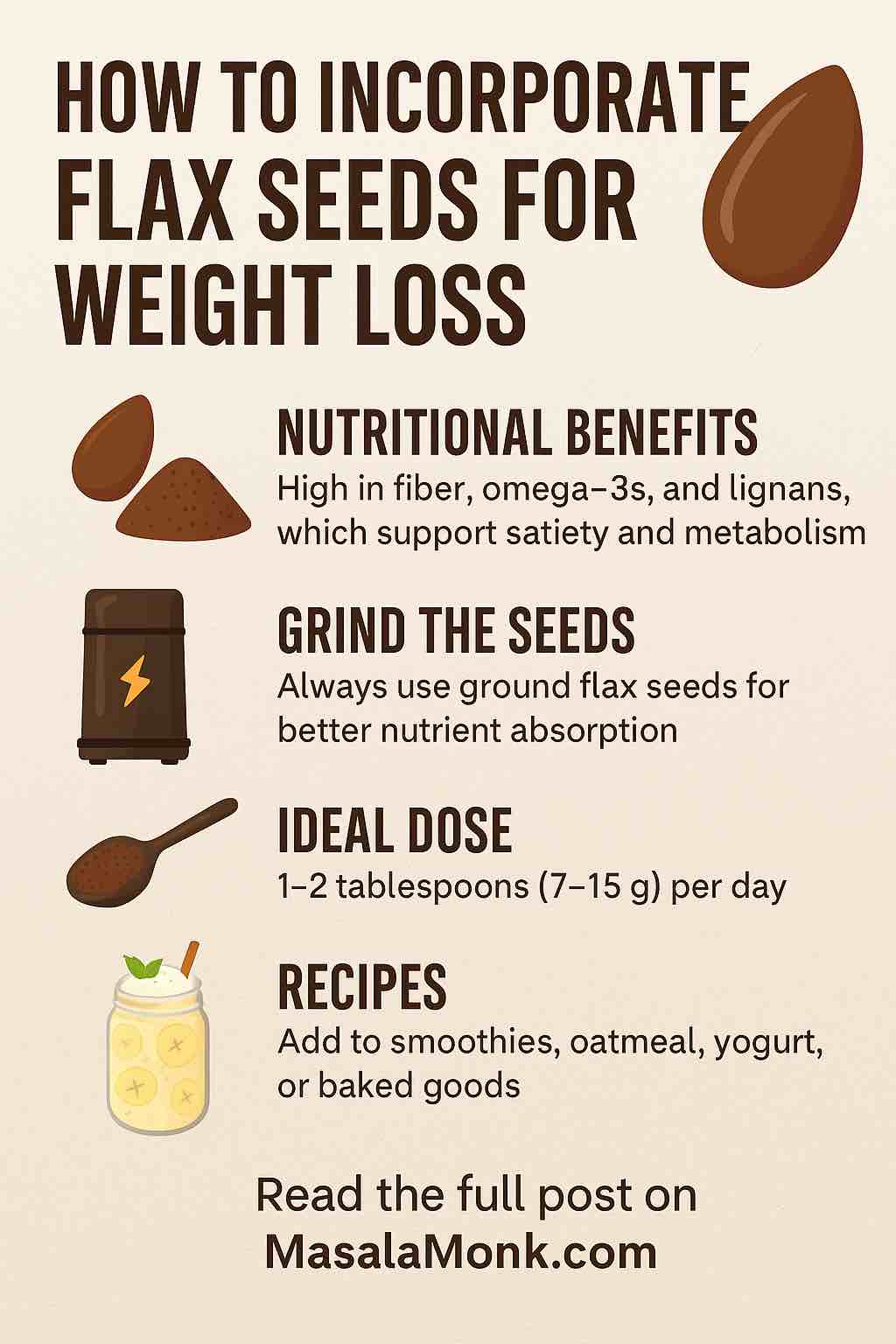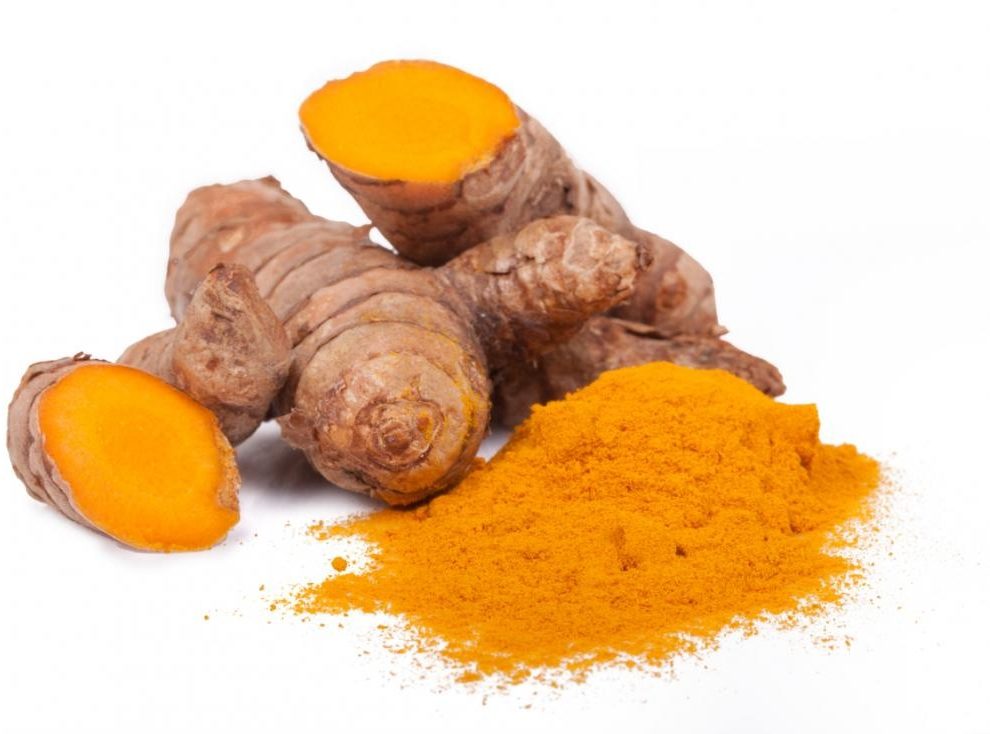
Flax seeds have become a popular addition to healthy diets worldwide, praised for their dense nutritional profile and impressive health benefits. But did you know they can also support your weight loss journey? In this guide, we go beyond the basics to explore how to effectively incorporate flax seeds for weight loss, supported by the latest research, expert tips, and delicious, easy-to-follow recipes.
Why Flax Seeds Work for Weight Loss
1. Rich in Dietary Fiber
Ground flax seeds are a powerhouse of both soluble and insoluble fiber. Just two tablespoons contain around 4 grams of fiber, which helps to:
- Increase feelings of fullness
- Reduce overall calorie intake
- Improve digestive health
Soluble fiber, in particular, forms a gel-like substance in the gut, slowing digestion and making you feel satisfied for longer.
2. Packed with Omega-3 Fatty Acids
Flax seeds are the richest plant-based source of alpha-linolenic acid (ALA), a type of omega-3 that helps:
- Reduce inflammation
- Support fat metabolism
- Improve cardiovascular health
These benefits indirectly support weight loss, especially in individuals with metabolic syndrome or obesity-related inflammation.
3. Lignans and Metabolism
Flax seeds contain plant lignans, which are phytoestrogens known to:
- Help regulate hormonal balance
- Reduce oxidative stress
- Potentially improve fat metabolism
Research shows lignans may also help regulate blood sugar levels, curbing cravings and binge eating.
What Science Says: Latest 2024–2025 Research Findings
Recent studies have confirmed flax seeds’ effectiveness for weight loss:
- Meta-analysis (2024): Showed that whole-ground flaxseed supplementation significantly improved BMI and body weight, especially in people with high cholesterol or metabolic disorders.
- RCT on Fatty Liver Patients (2025): Found flax improved weight, liver fat, and inflammation markers in overweight individuals with NAFLD.
- Blood Pressure Support: A 2024 review confirmed flax consumption helped reduce systolic and diastolic blood pressure, enhancing heart health during weight loss.
These findings suggest that a daily intake of 2 tablespoons (about 30g) of ground flaxseed for at least 12 weeks yields modest but real improvements in body weight, waist circumference, and metabolic health.
How to Incorporate Flax Seeds Into Your Daily Routine
1. Start Small and Build Up
Begin with 1 teaspoon per day and increase gradually to avoid bloating or gas. The goal is to reach about 1–2 tablespoons daily.
2. Always Use Ground Flax Seeds
Whole flax seeds often pass through your digestive system undigested. Ground flax seeds offer full nutrient absorption. Store them in an airtight container in the fridge or freezer.
3. Stay Hydrated
Because of their high fiber content, flax seeds require plenty of water to work effectively and to prevent constipation.
4. Time Your Intake
Some of the best times to consume flax seeds include:
- Morning: Stir into warm water with lemon or add to oatmeal.
- Afternoon: Sprinkle over a salad or yogurt.
- Pre/Post Workout: Blend into a smoothie for a protein-fiber boost.
Sample Daily Plan for Weight Loss with Flax Seeds
| Time | Meal/Drink | Flax Incorporation |
|---|---|---|
| 8:00 AM | Warm lemon water | 1 tsp ground flax mixed in |
| 9:00 AM | Oatmeal + berries | 1 tbsp ground flax stirred in |
| 12:30 PM | Salad with grilled chicken | Flaxseed oil in vinaigrette |
| 4:00 PM | Greek yogurt + honey | 1 tsp ground flax on top |
| 7:00 PM | Veggie stir-fry + brown rice | Flax “egg” in the stir-fry |
5 Easy and Delicious Flax Seed Recipes
1. Flaxseed Energy Balls
Ingredients:
- 1 cup rolled oats
- 1/2 cup ground flaxseed
- 1/2 cup almond butter
- 1/4 cup honey or maple syrup
- 1/4 cup shredded coconut
- 1 tsp vanilla
Mix all ingredients, roll into balls, refrigerate.
2. Banana Flax Smoothie
Blend:
- 1 banana
- 1 cup almond milk
- 1 tbsp ground flaxseed
- 1/2 cup spinach
- Ice cubes
3. Flax Yogurt Parfait
Layer Greek yogurt, fresh berries, flaxseed, and a drizzle of honey.
4. Flax Oatmeal
Stir 1 tablespoon of ground flax into your morning oats with cinnamon, apple, or banana.
5. Flax Tea (for digestion & cravings)
Boil 1 tbsp whole flax seeds in 2 cups water for 5 minutes. Strain, sip warm.
Precautions and Who Should Avoid
- Pregnancy/Breastfeeding: Consult a doctor due to phytoestrogen content.
- Blood Thinners: May interact with flax’s mild anti-coagulant effect.
- Digestive Issues: Start slow if you have IBS or diverticulitis.
Final Thoughts
Incorporating flax seeds into your diet is a simple, affordable, and research-backed strategy for supporting weight loss. With consistent daily use, especially in ground form, flax seeds not only help you manage weight but also improve heart health, digestion, and hormonal balance.
Start small, experiment with fun recipes, and combine flax with a holistic approach including whole foods, hydration, exercise, and rest. Over time, you’ll likely notice both subtle and meaningful improvements in your health and waistline.
Let food be your medicine—and flax be one of your daily allies.
✅ 10 FAQs About Using Flax Seeds for Weight Loss
1. Can flax seeds really help with weight loss?
Yes, multiple studies show that daily consumption of ground flax seeds (1–2 tablespoons) can modestly reduce weight, BMI, and waist circumference, especially when paired with a balanced diet and exercise.
2. Should I use whole or ground flax seeds?
Use ground flax seeds. Whole seeds often pass through the digestive tract undigested, meaning you miss out on most of their nutrients.
3. When is the best time to eat flax seeds for weight loss?
Morning is ideal—add ground flax to warm lemon water, oatmeal, or a smoothie. This helps control appetite and stabilize blood sugar throughout the day.
4. How much flaxseed should I consume daily for weight loss?
Start with 1 teaspoon and work up to 1–2 tablespoons (7–15g) per day. This amount is safe, effective, and used in most research studies.
5. Can I take flaxseed oil instead of ground seeds?
Flaxseed oil contains omega-3s but lacks fiber and lignans, which are critical for weight loss. For full benefits, use ground seeds—not just the oil.
6. Do flax seeds have any side effects?
Some people may experience gas, bloating, or loose stools if they increase fiber too quickly. Always start with a small amount and drink plenty of water.
7. Can I use flax seeds if I’m on medication?
Possibly—but consult your doctor if you’re on blood thinners, hormone therapies, or managing a hormone-sensitive condition. Flax has mild estrogen-like properties.
8. Can flax seeds replace a meal?
Not alone—but they’re a great supplement to meals. Combine flax with protein, healthy fats, and complex carbs for sustained energy and satiety.
9. Can pregnant or breastfeeding women take flax seeds?
There’s limited research on this. Some sources suggest caution due to phytoestrogens. Always consult a healthcare provider first.
10. How do I store flax seeds to keep them fresh?
Store ground flax seeds in an airtight container in the fridge or freezer. Whole seeds last longer but should still be kept cool and dry.












